
Marijuana addiction is a known substance use disorder. However, it is not detailed by those promoting the drug and its many supposed benefits. Instead, marijuana use disorders are all but dismissed by the pro-marijuana community.
Dependence to the Schedule I substance develops when the brain adapts to continuous use of marijuana by reducing production and sensitivity to its own endocannabinoid neurotransmitters. As with many drugs including alcohol, our brain’s reward system – when overstimulated – builds a tolerance that can only be satiated with more use. Withdrawal, paired with continued drug use to prevent those symptoms, can lead to a substance use disorder.
The Diagnostic and Statistical Manual of Mental Disorders, Fifth Edition (DSM-5) characterizes substance use disorders when an individual’s continued use of drugs or alcohol “causes clinically and functionally significant impairment, such as health problems, disability, and failure to meet major responsibilities at work, school, or home.”
Data gathered by the National Institute on Drug Abuse (NIDA) helps to bring clarity to the ongoing debate about marijuana use disorders and addiction. Marijuana’s psychoactive ingredient, delta-9-tetrahydrocannabinol (THC), generates its mind-altering effects. Drug dependence has become more of an issue because THC concentrations in marijuana have increased dramatically during the past two decades. Average THC concentrations in the 1990s registered around 3.8%, compared to, 12.2% in 2014.
Marijuana dependence by the numbers:
- Recent data suggests that 30% of those who use marijuana may have some degree of a marijuana use disorder
- An estimated 9% of people who use marijuana will become dependent
- Roughly 4 million people in the U.S. met diagnostic criteria for a marijuana use disorder in 2015 and 138,000 people voluntarily sought treatment for marijuana use
Despite the known side effects and long-term consequences of using marijuana, the drug remains as popular as ever. While under the influence, American workers in particular continue to use the drug at an alarming rate. Recent findings by the Quest Diagnostics Drug Testing Index™ found that overall marijuana positivity continued its five-year upward trajectory in urine testing for both the general U.S. workforce and the federally-mandated, safety-sensitive workforce. Marijuana positivity increased 4% in the general U.S. workforce (2.5% in 2016 versus 2.6% in 2017) and nearly 8% in the safety-sensitive workforce (0.78% versus 0.84%).
Dr. Barry Sample, Senior Director of Science and Technology, Quest Diagnostics spoke about marijuana positivity. “While it is too early to tell if this is a trend, our data suggests that the recreational use of marijuana is spilling into the workforce, including among individuals most responsible for keeping our communities safe. We encourage policy analysts to track these trends closely to determine whether a correlation between the state legalization of marijuana and increased workforce drug use, as suggested by our data, bears out in other research,” he said.
Is marijuana addictive? It is safe to say that indeed it is. Despite its potentially addictive nature, the trend of state legalization continues throughout the U.S. The issue then turns to companies tasked with hiring positions that range from retail to airline pilots to construction. The issue for employers should not be about the legality of marijuana but instead focus on whether or not they want employees in their workforce high on the job or possibly even hooked on drugs. After all, the impact and costs of drug use in the workplace is well documented.
In the end, information detailing the potential for addiction and the development of substance use disorders due to marijuana use should be more prevalent for the public. Getting the facts about the consequences of drug use can only help people make choices to live healthier and more productive lives.
If you or someone you know is unable to stop using drugs or alcohol, seek a referral from your primary care physician or locate an addiction specialist from the American Society of Addicttion Medicine.
To learn more about marijuana, visit our website.
 Your Privacy Choices
|
Privacy Notices
|
Terms
|
Language Assistance / Non-Discrimination Notice | Asistencia de Idiomas / Aviso de no Discriminación | 語言協助 / 不䈚視通知
Your Privacy Choices
|
Privacy Notices
|
Terms
|
Language Assistance / Non-Discrimination Notice | Asistencia de Idiomas / Aviso de no Discriminación | 語言協助 / 不䈚視通知
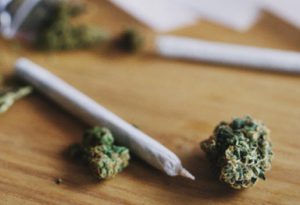



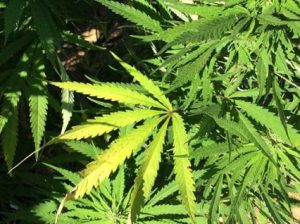
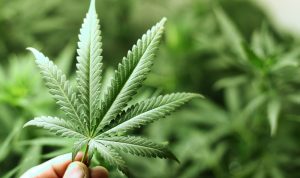
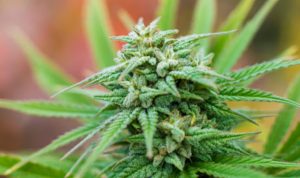

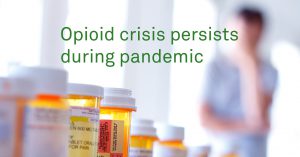

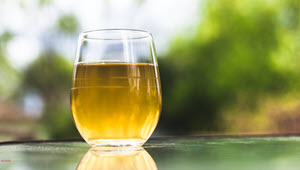


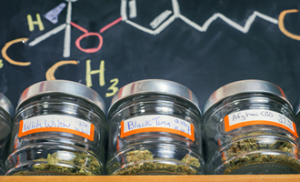




Marijuana addiction is a known substance use disorder. However, it is not detailed by those promoting the drug and its many supposed benefits. Instead, marijuana use disorders are all but dismissed by the pro-marijuana community.
Dependence to the Schedule I substance develops when the brain adapts to continuous use of marijuana by reducing production and sensitivity to its own endocannabinoid neurotransmitters. As with many drugs including alcohol, our brain’s reward system – when overstimulated – builds a tolerance that can only be satiated with more use. Withdrawal, paired with continued drug use to prevent those symptoms, can lead to a substance use disorder.
The Diagnostic and Statistical Manual of Mental Disorders, Fifth Edition (DSM-5) characterizes substance use disorders when an individual’s continued use of drugs or alcohol “causes clinically and functionally significant impairment, such as health problems, disability, and failure to meet major responsibilities at work, school, or home.”
Data gathered by the National Institute on Drug Abuse (NIDA) helps to bring clarity to the ongoing debate about marijuana use disorders and addiction. Marijuana’s psychoactive ingredient, delta-9-tetrahydrocannabinol (THC), generates its mind-altering effects. Drug dependence has become more of an issue because THC concentrations in marijuana have increased dramatically during the past two decades. Average THC concentrations in the 1990s registered around 3.8%, compared to, 12.2% in 2014.
Marijuana dependence by the numbers:
Despite the known side effects and long-term consequences of using marijuana, the drug remains as popular as ever. While under the influence, American workers in particular continue to use the drug at an alarming rate. Recent findings by the Quest Diagnostics Drug Testing Index™ found that overall marijuana positivity continued its five-year upward trajectory in urine testing for both the general U.S. workforce and the federally-mandated, safety-sensitive workforce. Marijuana positivity increased 4% in the general U.S. workforce (2.5% in 2016 versus 2.6% in 2017) and nearly 8% in the safety-sensitive workforce (0.78% versus 0.84%).
Dr. Barry Sample, Senior Director of Science and Technology, Quest Diagnostics spoke about marijuana positivity. “While it is too early to tell if this is a trend, our data suggests that the recreational use of marijuana is spilling into the workforce, including among individuals most responsible for keeping our communities safe. We encourage policy analysts to track these trends closely to determine whether a correlation between the state legalization of marijuana and increased workforce drug use, as suggested by our data, bears out in other research,” he said.
Is marijuana addictive? It is safe to say that indeed it is. Despite its potentially addictive nature, the trend of state legalization continues throughout the U.S. The issue then turns to companies tasked with hiring positions that range from retail to airline pilots to construction. The issue for employers should not be about the legality of marijuana but instead focus on whether or not they want employees in their workforce high on the job or possibly even hooked on drugs. After all, the impact and costs of drug use in the workplace is well documented.
In the end, information detailing the potential for addiction and the development of substance use disorders due to marijuana use should be more prevalent for the public. Getting the facts about the consequences of drug use can only help people make choices to live healthier and more productive lives.
If you or someone you know is unable to stop using drugs or alcohol, seek a referral from your primary care physician or locate an addiction specialist from the American Society of Addicttion Medicine.
To learn more about marijuana, visit our website.